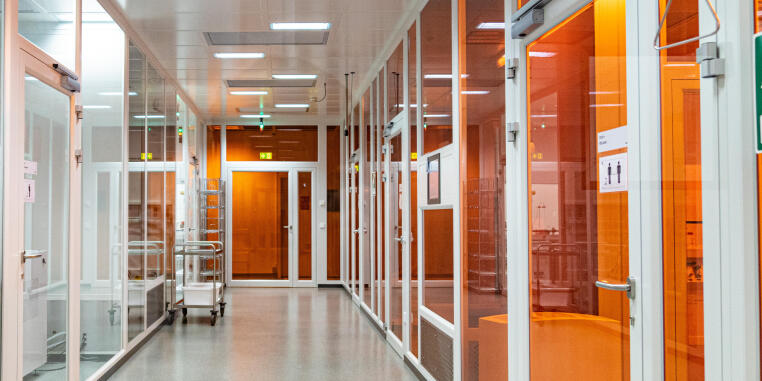
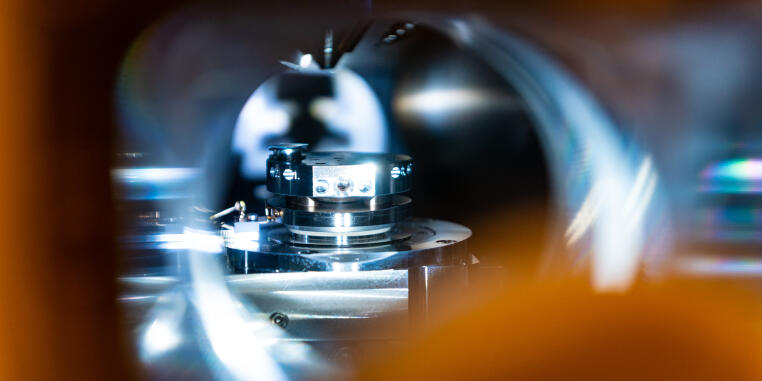
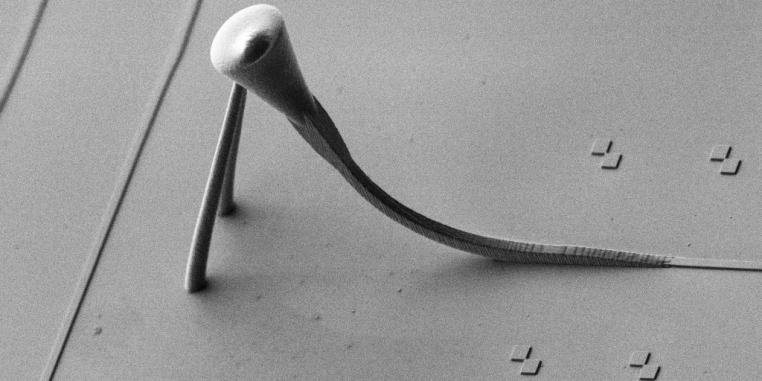
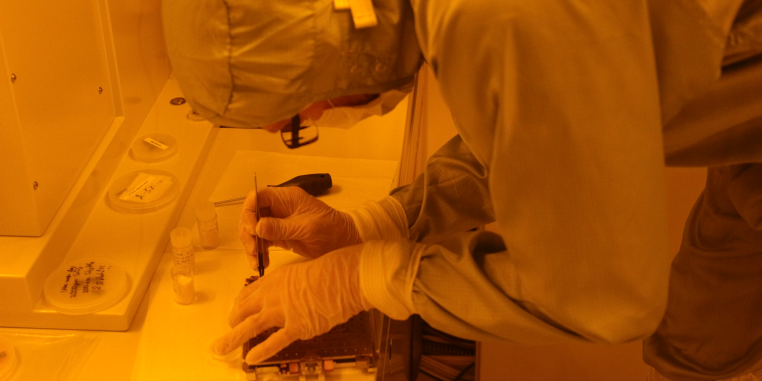

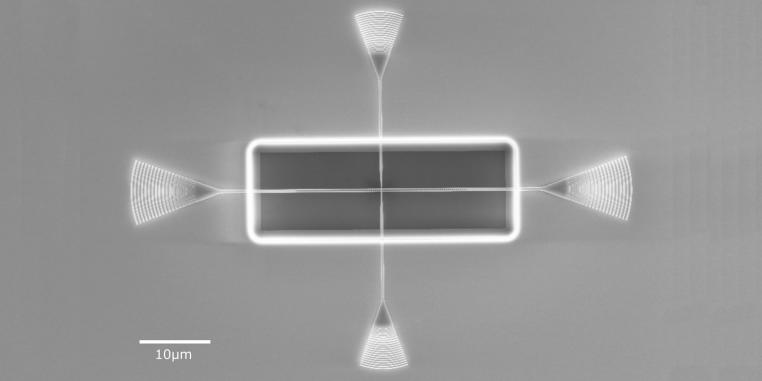
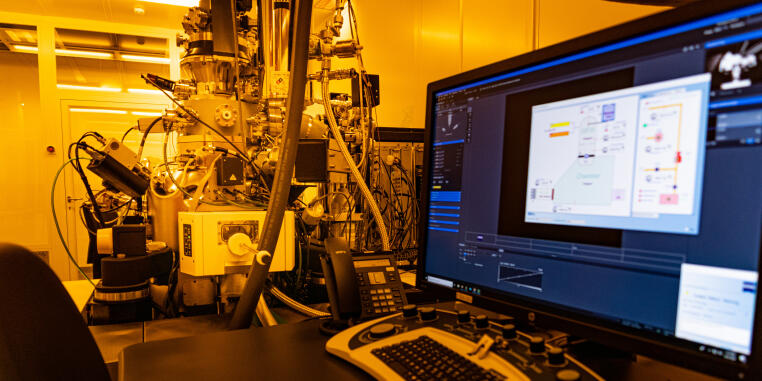











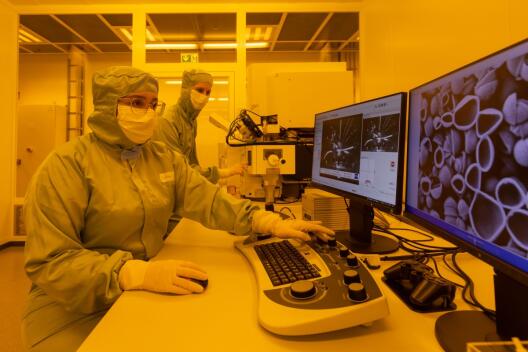
The MNF is a state-of-the-art, 300 m² nanofabrication and nanoanalytics machine park classified from ISO 5 to 7. Located at the University of Münster, we provide nanostructuring and nanofabrication technologies for an interdisciplinary research community of scientists and engineers in physics, chemistry, earth sciences and biology, both within and outside the university.
If you are interested in exploring advanced nanofabrication and nanoanalytics techniques, the MNF is here for you.
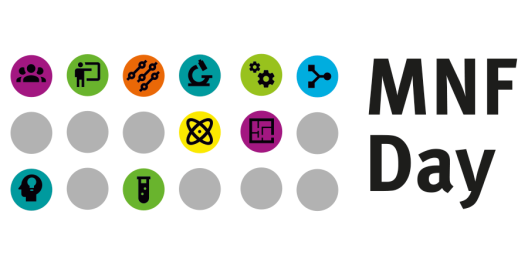
This year's event premiered a new blitz talk format, sparking enthusiastic conversations during lunch and coffee breaks. Dr. Maik Stappers gave the annual MNF update and students presented their research during a poster session, competing for the "Best Poster Award." Full details and pictures of the event are on our MNF Day page.
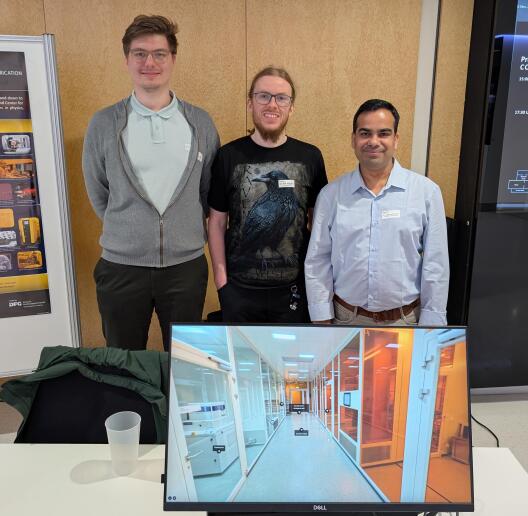
We presented our new 360° cleanroom tour at the national Quantum 100 event in Münster, where representatives from education, science, and industry showcased exciting technological achievements from 100 years of research and development in the field of quantum technology.
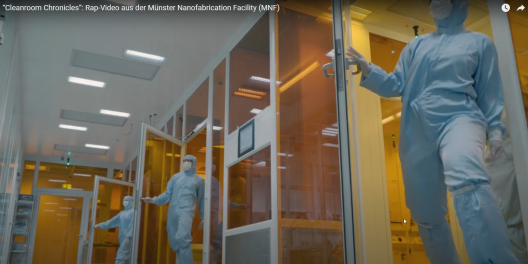
To play the video, it will be loaded from a Webserver of Google™ LLC. Therefore data will be transmitted to Google™ LLC.
Get a sneak peek into life as a student scientist at the MNF! Our researchers show off their fun side with a dance interpretation of their work in the cleanrooms. Long hours and hard work, yes - but creativity & international teamwork make it all worth it!
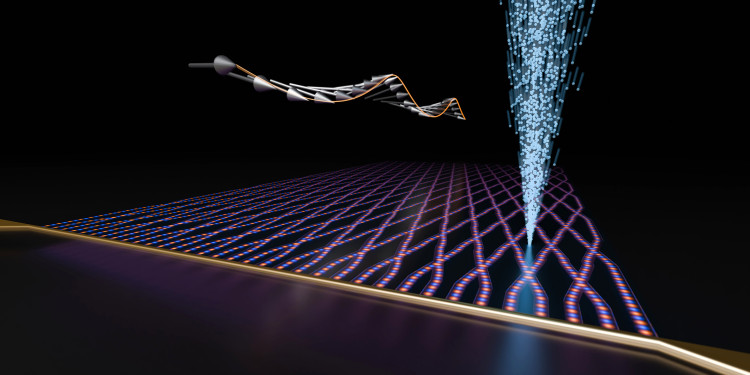
The rapid rise in AI applications has placed increasingly heavy demands on our energy infrastructure. All the more reason to find energy-saving solutions for AI hardware. One promising idea is the use of so-called spin waves to process information. A team from the Universities of Münster and Heidelberg led by physicist Prof. Rudolf Bratschitsch (Münster) has now developed a new way to produce waveguides in which the spin waves can propagate particularly far. They have thus created the largest spin waveguide network to date. Furthermore, the group succeeded in specifically controlling the properties of the spin wave transmitted in the waveguide. For example, they were able to precisely alter the wavelength and reflection of the spin wave at a certain interface. The study was published in the scientific journal Nature Materials.

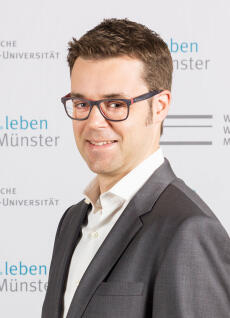
In 1925, physicist Werner Heisenberg published a seminal paper in which he mathematically described quantum mechanics, the study of physics at the atomic and subatomic levels. 100 years later, the United Nations, the German Physical Society (DPG) and physics societies worldwide are celebrating this anniversary with the “International Year of Quantum Science and Technology”. In an interview with Christina Hoppenbrock, quantum physicist Professor Carsten Schuck from the University of Münster explains why classical physics is not enough to understand the world.

Ein Team um den Physiker Prof. Dr. Carsten Schuck und den Studenten Lukas Schulte sowie die Doktoranden Tim Buskasper und David Lemli hat den weltweit kleinsten QR-Code hergestellt. Mit einer Größe von 5,38 Quadratmikrometern ist er rund 20 Mal kleiner als der bisherige Weltrekord einer Forschungsgruppe aus Singapur und etwa siebenmal kleiner als eine menschliche rote Blutzelle. Die Arbeitsgruppe produzierte das Fabrikat mithilfe eines Elektronenstrahllithographie-Gerätes in den Reinräumen der „Münster Nanofabrication Facility“ (MNF). Hier arbeiten Forscherinnen und Forscher verschiedener Fachrichtungen sowie Masterstudierende im Praktikum „Grundlagen der Nanofabrikation“. „Die technische Ausstattung in der MNF ist hochmodern und kommt neben unseren Forschungsaktivitäten in der Quantentechnologie unseren Studierenden in innovativen Lehrformaten zugute, die in Praktika nanoskalige QR-Codes herstellen – wenn auch etwas größer als bei unserem Rekordversuch“, unterstreicht Carsten Schuck.
University news
AG Schuck / Department for Quantum Technology
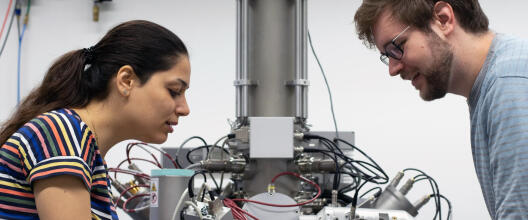
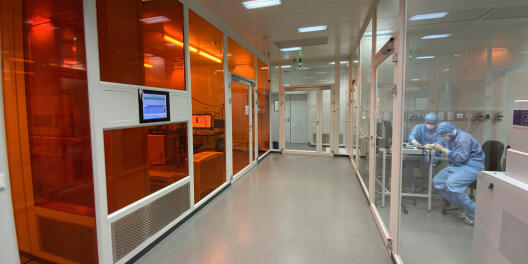
The first cleanroom at the University of Münster was established in the Center for NanoTechnology (CeNTech) in 2003. Following the University's expanding presence in nanoscience, this original facility required significant upgrades to meet the needs of researchers and remain competitive with peer institutions.
Through the approval of the Center for Soft Nanoscience (SoN) research program, the WWU received a multi-million euro investment, including a capital equipment upgrade and several large instrument grants. In 2017 the MNF expanded into brand new cleanroom facilities in the SoN building.
Supporting its full transformation into the Münster Nanofabrication Facility (MNF), the Deutsche Forschungsgemeinschaft (DFG) provided funding in 2020 to establish the MNF as a core university facility providing services for university members and external users.